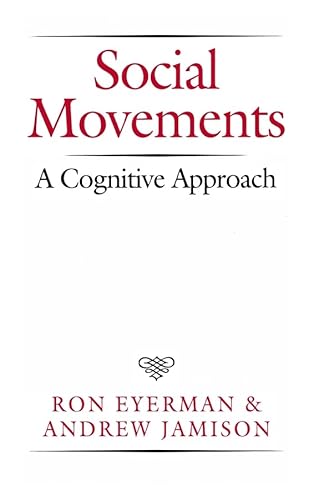Items related to Social Movements: A Cognitive Approach

Synopsis
In recent years, social movements have become a popular subject of sociological investigation. This book considers the subject, integrating American and European approaches. The authors see social movements in terms of a social theory of knowledge that is both politically and historically informed. Social movements are, they argue, forms of activity whereby individuals create new kinds of social identities not only for themselves, but for the societies of which they are a part. The book is particularly concerned with processes which transform groups of individuals into social movements, and which give social movements their active orientation. Social movements from different periods and cultures are examined comparatively.
"synopsis" may belong to another edition of this title.
Review
′Eyerman and Jamison have written a pathbreaking book that simultaneously places previous theories of collective behaviour in sociohistorical perspective while developing their own cognitive approach to social movements.′ Choice
′Readable and well documented. I would recommend Eyerman and Jamison′s book to all scholars who are interested in social movements.′ ANZJS
From the Back Cover
Social movements are now a popular subject of sociological investigation. This timely book offers a new approach to the study of such movements, integrating American and European approaches. The authors are particularly concerned with the processes which transform groups of individuals into social movements, and which give social movements their active orientation. They examine the success and failure of social movements in comparative terms, comparing different historical periods as well as political cultures.
"About this title" may belong to another edition of this title.
£ 5.50 shipping from United Kingdom to U.S.A.
Destination, rates & speedsSearch results for Social Movements: A Cognitive Approach
Social Movements: A Cognitive Approach
Seller: Reuseabook, Gloucester, GLOS, United Kingdom
hardcover. Condition: Used; Good. Dispatched, from the UK, within 48 hours of ordering. This book is in good condition but will show signs of previous ownership. Please expect some creasing to the spine and/or minor damage to the cover. Grubby book may have mild dirt or some staining, mostly on the edges of pages. Damaged book. Slightly damaged in some way typically, a grazed corner or torn cover. Seller Inventory # CHL10486359
Quantity: 1 available
Social Movements
Seller: JuddSt.Pancras, London, United Kingdom
Hardcover. Condition: Very Good. Seller Inventory # c37751
Quantity: 1 available

